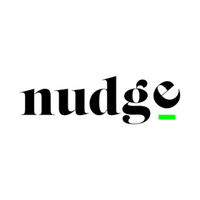Top tips for communicating complex retirement messages
The path to retirement confidence can leave some employees feeling bewildered.
BlackRock’s recent report, Read on Retirement reveals that many employees, across different generations, feel unprepared and overwhelmed by the intricacies of retirement planning.
This complexity can be compounded by a lack of impartial retirement education and clear communications.
The reality is that people want to feel secure that their financial future is covered.
In fact, Nudge’s recent 2024 Global financial wellbeing research found that 87% of employees across the globe said saving for retirement is one of their life goals.
Simple, accessible messaging
It seems people know they need to save - and want to - but they’re struggling to prioritize it in their day-to-day lives.
It's evident that retirement messaging needs to be simple and direct.
By cutting through the jargon and presenting information in a clear, accessible manner, employers can help employees feel more confident and prepared as they plan for their financial future.
Why is planning for retirement so complex?
No instant gratification
We live in a world of instant gratification - and retirement is far from instant.
Planning spans decades and, in that time, life changes, income or spending changes, your or your family’s health might change.
There are several biases that stop us from planning for the future.
Present bias (hyperbolic discounting) means our brains are wired up for immediate rewards over larger, delayed rewards. Coupled with procrastination, means we must work hard to overcome our psychological limitations to plan for our financial future.
Volatile, ever-changing conditions
Retirement planning is akin to predicting the future - and how can we when the financial world changes from week to week? There is so much to factor in such as inflation rates, investment returns, tax laws, government programs and retirement regulations.
Keeping up with market fluctuations and understanding their implications for your financial future can feel overwhelming.
Off-putting terminology
With a plethora of retirement savings and accounts options out there, people struggle to differentiate between each.
For example, you have annuities, stocks and bonds and each investment type has its own set of rules, tax implications, and potential risks.
The language, terminology and technical jargon, make it difficult for employees, particularly for those without access to financial education, to understand the nuance of different retirement products.
So, retirement planning isn’t easy, but it could be with relevant and personalized guidance at the right times in life.
This is where you, as the employer, are in a unique position to play an essential role in this process.
Retirement is inevitable and it’s pivotal that employers encourage their people to create a plan for life after work.
But what can employers do to step-up and simplify the experience?
Top tips for communicating complex retirement messages:
- Start with unbiased, relevant financial and benefit education: empower employees to make informed decisions about their retirement planning and help them to understand their options or make choices that are in their best interest.
- Remove jargon and then some: simplify language, provide clear definitions, showcase examples of employees, break down complex concepts, use storytelling and interactive content, avoid industry jargon at all costs and test it out.
- Diverse language and imagery: ensuring inclusivity will enable you to connect with a broad, global audience. Using different languages and imagery reflecting diverse backgrounds, experiences, and perspectives of individuals instantly makes the communications more relatable and accessible.
- Test different channels and experiences: define your different employee groups, then utilize channels such as workplace tools (Slack, MS Teams), emails, workshops, or ERGs. Implement various communication styles, formats, and engagement strategies. Collect feedback, and engagement data then determine which channels and approaches resonate most effectively with each group.
- More impact - less comms: cut through the retirement noise with simple, creative, and insight-driven campaigns. Employees are faced with a lot of communications on many different channels so for people to take notice, you’ll need to get creative.
- Be accessible with no barriers to entry: the key to successful communications that drive action, is providing an easy and accessible route to entry. Provide quick access to websites and information, support employees signing into their accounts for the first time and ensure all steps and additional information are clearly stated and shared centrally.
For more insights to support your retirement strategy, download Nudge’s 2024 Global financial wellbeing report.
Did you know in the US it’s National 401k day on September 6? And in the UK, it’s Pensions Awareness Week September 9-13. Take the opportunity to launch your next big impact campaign during that time and rejuvenate retirement planning for your people this year.
Keep ahead of global awareness dates - download our 2024 Global Financial Wellbeing Calendar.
Supplied by REBA Associate Member, Nudge
A leading financial wellbeing benefit using behavioural science & technology to help employees.








